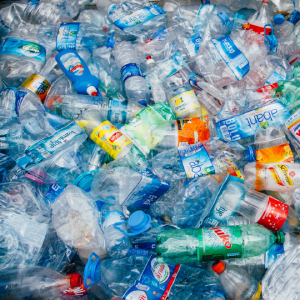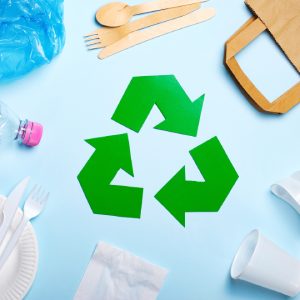Lets work together



Suite 3A, Chapel Allerton House, 114 Harrogate Road, Leeds, LS7 4NY
ukinfo@integrated-skills.com
+44 (0) 3300 888 670

100 Days of a Labour Government, a Budget and the Immediate Future for Municipal Environmental Services including Waste Management
The Labour government has completed its first 100 days in office, marked by significant policy shifts and the introduction of the Autumn Budget. These developments have direct implications for municipal environmental services – particularly in waste management and recycling.
From electric HGVs to the Extended Producer Responsibility scheme, an increase in the Plastic Packaging Tax and promises of EPR top-up funding for local councils – here we’ll be discussing the expected impact on local municipality.
Going Electric
It’s well documented that the Government is keen to encourage a switch to electric vehicles, but the budget did not reflect that commitment. There has been some frustration felt across the industry at the lack of backing for electrification in the budget.
Following the budget, Michael Topham (CEO of Biffa) wrote an open letter, published via letsrecycle.com. He touched on many points in his letter, but notably commented on the lack of support for a switch to electric HGVs for waste management services:
“…we’re disappointed the budget didn’t offer significant new backing for decarbonising commercial road vehicles. We very much want to transition more of our collection fleet of HGVs to alternative fuels. To deliver this, we need a policy framework that will drive investment in grid upgrades and accelerate progress on HGV electrification.
In the interim, whilst the infrastructure for electric vehicles develops, we need incentives to drive the adoption of low-carbon fuels such as HVO to cut emissions. Again, we’ll continue to call for these changes.”
Without investment in infrastructure, local councils will be hard-pressed to upgrade their fleets, delaying an improvement in the environmental impact of waste and recycling management.
Defra Funding
Also mentioned in Mr Topham’s letter is the reduction in funding for the Department of for Environment, Food and Rural Affairs (Defra). This is a government department responsible for:
They are instrumental in keeping the UK on track to net-zero, so any reduction in funding is a blow to the green agenda:
“The real term expenditure limits for DEFRA are concerning, at a time when resourcing for the Environment Agency to enable effective regulation and enforcement across our sector is more crucial than ever.” Chartered Institution of Wastes Management
Extended Producer Responsibility (EPR) and Council Funding
One of the government’s central environmental policies is the Extended Producer Responsibility (EPR) scheme. The scheme has been paused for payments until 2025, but the regulations have been in place since 2023- despite the rates to be paid not yet being decided. The guidance states:
“EPR for packaging fees have been deferred for a year. You will not have to pay any EPR packaging fees in 2024. However, you must still follow this guidance and report your packaging data for 2023 and will be required to pay any related fees in 2025 based on 2024 data. You must also continue to pay any fees due under previous regulations.”
This initiative is designed to make producers accountable for the costs associated with the disposal of the packaging their products are supplied in. Councils are expected to receive substantial EPR funding to manage this waste (estimated at £1.1 billion for 2025-26).
However, in anticipation of potential funding gaps, Chancellor Rachel Reeves has committed to providing additional Treasury funds, should EPR payments fall short in 2025-26. This commitment aims to support councils through the EPR transition, ensuring they have sufficient resources for waste management.
Exact details of the top-up scheme will be determined via the Local Government Finance Settlement (LGFS) process- an annual decision-making process regarding the funding to be supplied to local government from central government.
Plastic Packaging Tax and Mass Balance Approach
The Autumn Budget also proposed updates to the Plastic Packaging Tax (PPT), which promotes recycled plastics usage. As part of this, the tax rate will be adjusted for inflation in the coming fiscal year.
In addition, businesses will be allowed to use a mass balance approach to certify recycled content within chemically recycled plastics, making it easier to incorporate these materials.
This approach is expected to drive investment in advanced chemical recycling processes, which could contribute significantly to a circular economy model, by boosting recycling rates and reducing waste.
Jim Bligh, Director of Corporate Affairs and Packaging at the Food and Drink Federation, welcomed the news, saying:
“Food and drink manufacturers want and need a circular economy for packaging recycling, so it’s great news that the government will enable companies to use mass balance accounting. This important change will open up new markets for advanced recycling in the UK, creating green jobs and investment opportunities, while increasing the amount of recycled content used in food-grade packaging.”

Simpler Recycling
In November 2024, the Labour government announced some changes to the inherited Simpler Recycling policy. They have reduced the number of default bins from 7 to 4 and have left it up to individual councils to decide on the frequency of collections.
This is a welcome switch to a more pragmatic approach that allows local authorities to make decisions based on local needs. WRAP summarised their thoughts on the changes:
“In particular, we welcome the focus on allowing Councils choice on frequency of residual collections. Councils are best placed to determine these local decisions which can maximise financial savings and increase recycling participation and capture rates of valuable resources.”
Accelerating the Deposit Return Scheme
Labour have made it clear they intend to bring the implementation date for the Deposit Return Scheme (DRS) forward, although no date has been announced. The scheme was originally set to come into force in October 2027, a date that was heavily criticised.
The announcement came from Circular Economy Minister, Mary Creagh:
“This government is dedicated to developing a roadmap towards a zero-waste economy – a future where resources are used for longer, waste is minimised, the path to net zero is accelerated, and there is significant investment in critical infrastructure and green jobs. This will lead to a thriving economy and a flourishing natural environment.”
The news has been warmly received following a manifesto seemingly devoid of environmental policy. The industry has warned though, that for the scheme to be effective, it must include all types of containers: plastic, aluminium, and glass. The details have yet to be clarified.

Implications for Municipal Environmental Services
All the above will have broad implications for those who manage municipal environmental services and for those who provide waste management software. We expect key effects to include:
Thoughts from Integrated Skills, Waste Management Software Provider
As the Labour government passes its 100-day mark, its focus on environmental sustainability is clear. While the budget wasn’t perfect in its support of the net-zero commitment, with Defra funding and electric vehicle infrastructure coming up short, the introduction of EPR and updates to the Plastic Packaging Tax signal a commitment to creating a more sustainable waste management infrastructure.
Ultimately, we believe the budget will benefit councils in the short-term and also contribute to long-term environmental goals. Stuart Henshaw, Business Development Director at Integrated Skills, gave us his thoughts:
“Overall the Labour government and the budget did much to address concerns regarding the Circular Economy. However, the government had an excellent opportunity to adjust policies regarding Simpler Recycling – specifically, to insist that Councils move away from the weekly collection of household residual waste to a fortnightly or 3-weekly collection. This change that is proven to improve recycling rates, but they chose not to.”
Would you like to know more about 100 Days of Labour? Fill in your details below and let us know how we can help.
Website Designed & Built by we are CODA